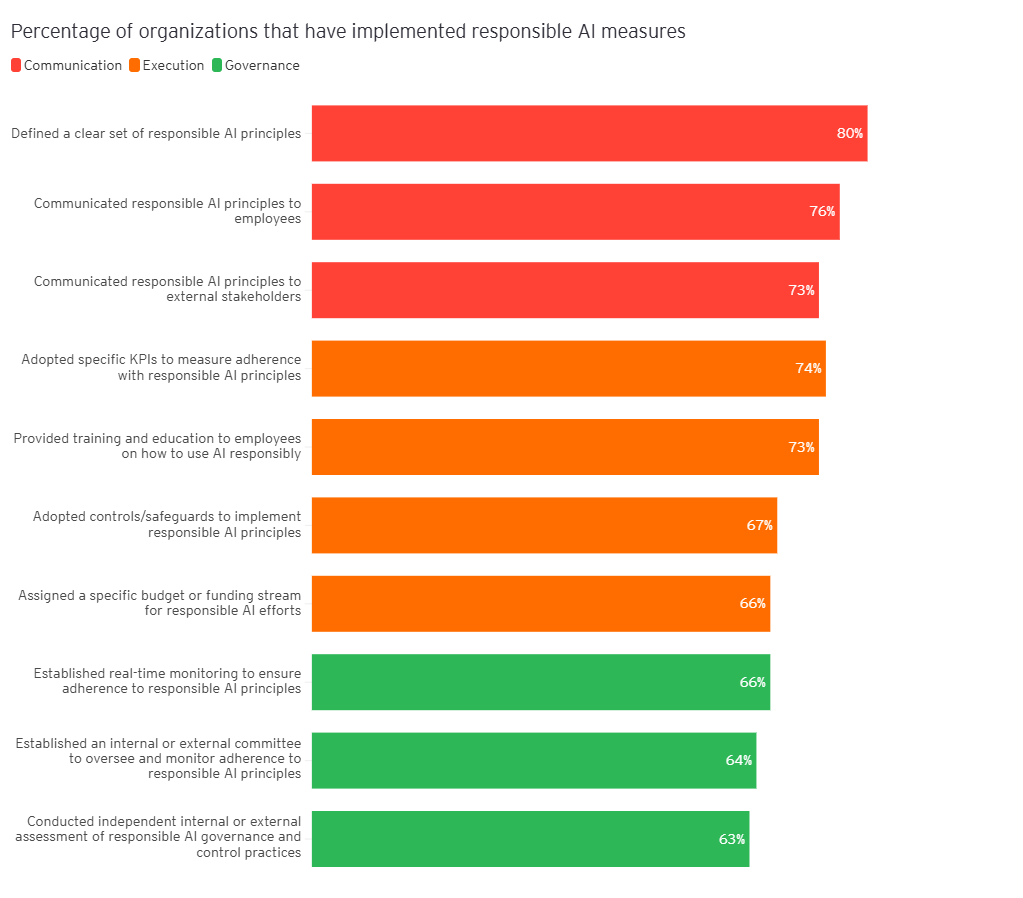Bank of America’s annual spending on new, strategic technology initiatives, which includes investments in artificial intelligence, has increased by 44% over the past decade to reach $4 billion in 2025. The executive that’s steering those investments is Hari Gopalkrishnan, a 14-year veteran who was promoted to serve as the chief technology and information officer in late July.
Today at Bank of America’s investor day event, Gopalkrishnan will outline the vision for these strategic tech bets and discuss how they tie into the broader $118 billion in tech investments that the company has made over the past decade. It is the first time leadership has held this event in 15 years and Gopalkrishnan, CEO Brian Moynihan, and other C-suite leaders will face investors as Bank of America’s stock has lagged the five other large U.S. banks for the past five years.
“We have steadily increased our spend in technology, now up to $13 billion a year, of which $4 billion goes into strategic growth,” Gopalkrishnan tells Fortune ahead of his one-hour investor day panel discussion with two other Bank of America technologists. “We leverage across the enterprise, so every dollar you spend gets the maximum bang for the buck, as opposed to sort of being siloed by line of business.”
That means that when Gopalkrishnan deploys new AI tools and functionality, he will prioritize applications that can scale across all eight lines of business, which includes global capital markets, consumer lending, and retail banking.
One example of this in action is Erica, an AI virtual assistant that’s surpassed three billion client interactions since the tool launched in 2018. It now averages more than 58 million interactions per month, facilitating chatbot conversations with clients, proactively altering them on changes to their past spending patterns or flagging when they may have been double-charged by a merchant, and answering banking questions. The tool is currently available on Bank of America’s mobile app, but will expand next year to the desktop.
In 2020, Bank of America launched Erica for Employees, an internal version of the tool that more than 90% of the company’s global workforce of 213,000 now uses regularly. Erica has helped reduce the number of calls into the company’s IT service desk by 50%.
The banking sector has embraced generative AI capabilities at a faster pace than most sectors, with investments focused on AI-enabled chatbots, virtual assistants that can summarize financial documents, fraud monitoring, and assisting employees as they navigate complex international regulatory changes. Generative, predictive, and other forms of AI collectively are projected to generate as much as $340 billion annually in value creation for the global banking sector, consulting giant McKinsey has estimated.
Financial giants, including Goldman Sachs and Citigroup, have also been steadily rolling out new generative AI tools to more employees throughout 2025.
At Bank of America, Gopalkrishnan says he’s less incentivized to focus his investments on AI tools that can save a couple minutes on simplistic workplace tasks. “When you look at the end-to-end client journey, they involve like 40-plus processes and thousands of employees,” says Gopalkrishnan. “You start to pick apart that process and reimagine it. That’s when you get ROI.”
Bank of America has explored more than 45 different “proof of concept” use cases for generative AI , with 15 of them commercially live today. Some of the priority use cases that Gopalkrishnan is deploying include tools that can summarize or offer search functionality for capital markets and investment banking employees, making it easier to pull real-time market commentary. An in-house built “AskGPS” tool, which was trained on over 3,200 internal documents and presentations, allows employees to ask complex questions on behalf of clients and receive responses within seconds.
Bank of America has also invested $1.5 billion into the company’s data capabilities over the past five years, which Gopalkrishnan says was critical to create a foundation that allowed for more AI adoption.
Within the technology department, Gopalkrishnan has deployed AI coding assistants that are used by 18,000 developers. There has already been a 20% productivity lift to select parts of the development life cycle that Bank of America has focused its efforts on.
Gopalkrishnan says he’s mostly leaning on one unnamed vendor to support AI-enabled code assistance, but is continuing to explore other tools on a smaller scale. His intent is to standardize the application of these AI coding tools over time to as few vendors as possible.
More than 130,000 Bank of America employees are currently authorized to use the enterprise productivity tools and by the end of the year, everyone will have access to them. Bank of America has sought to motivate its workforce by offering AI learning programs that begin by teaching the basics of AI, but also more advanced prompt engineering training.
“It’s really a combination of training, education, giving them exposure to the tools, and then ongoing commitment to reskill, as the work changes,” says Gopalkrishnan.
John Kell
Send thoughts or suggestions to CIO Intelligence here.
NEWS PACKETS
Tech earnings highlight cracks in AI’s valuation halo. Meta, Alphabet, Microsoft, and Amazon have all spent billions to support their AI initiatives—and all four told investors last week that they will increase spending even more in 2026. Investors have consistently supported the AI boom over the past few years, though that enthusiasm showed some notable cracks in the latest earnings season, as Microsoft and Meta Platforms both saw their stocks fall amid concerns for the lofty levels of spending needed to support their AI ambitions. What’s vexing investors is: AI is generating billions of dollars in revenue and bottom-line efficiencies, but exactly how much, at what pace, and at what price? That investment thesis still needs time to marinate as these tech giants have added debt to support their AI spending.
OpenAI strikes a big compute deal with Amazon; projects massive revenue growth. On Monday, OpenAI inked a deal to buy $38 billion worth of compute from Amazon and will immediately start to access Nvidia’s graphics processing units. The partnership is notable as it is one of OpenAI’s first big moves away from Microsoft, who the AI startup had an exclusive cloud agreement with up until this year. Separately, OpenAI CEO Sam Altman indicated more bullish expectations for revenue growth, sharing that annual revenue is “well more” than reports of $13 billion a year. When asked by the Bg2 Pod about revenue estimates exceeding $100 billion a year by 2028 or 2029, Altman responded: “How about ‘27?”
Nvidia makes history as the first-ever company worth $5 trillion. Last week, AI chipmaker Nvidia officially became the world’s first company to achieve a market capitalization north of $5 trillion, pulling ahead of tech rivals like Microsoft and Apple, who are each worth close to $4 trillion. The latest stock market gains came after Nvidia’s GTC developer conference, where CEO Jensen Huang disclosed that the company had secured more than $500 billion in orders for its AI chips through the end of next year. Major new deals that have been unveiled the past several days have included partnerships with Eli Lilly, Uber Technologies, and Johnson & Johnson. Bloomberg reports that Nvidia is now larger than six of the 11 sectors in the S&P 500 index and the entire value of equity markets of most countries.
Hiring spree: AI companies are seeking more “forward-deployed engineers.” This year, job advertisements have been soaring for a new specialist software developer who can write code, but also is adept at talking to customers. By hiring more forward-deployed engineers, AI hyperscalers like Anthropic, OpenAI, and Cohere would aim to make their AI models more specialized and useful for companies, thus generating bigger contracts and more revenue. The Financial Times reports that job advertisements for these roles have increased more than 800% between January and September of 2025, citing data from the jobs platform Indeed.
ADOPTION CURVE
Firms that prioritize AI governance are also generating stronger returns from their investments. A recent EY survey of 975 C-suite leaders across 21 countries found that while nearly every company had already suffered financial losses from AI-related incidents—with average damages “conservatively” exceeding $4.4 million—the enterprises that had stronger governance measures like real-time monitoring and oversight committees were seeing far fewer damages. And notably, those organizations are also seeing stronger returns from their AI investments: 34% more likely to see improvements in revenue growth and 65% more likely to produce cost savings.
“When I look at that data, what it tells me is that those companies are taking AI more seriously,” says Joe Depa, EY’s global chief innovation officer. “That means they’re likely training and talking about how to leverage AI, both ethically, but also from a productivity standpoint.”
The survey also found that members of the C-suite may still be struggling to keep up with the rapid pace of change as AI technologies advance. On average, when asked to identify the appropriate controls against five AI-related risks, including hallucinations and bias, only 12% of the C-suite respondents answered correctly. CTOs and CIOs did the best (26% and 24%, respectively), while chief operating officers (6%) and chief marketing officers (3%) were at the bottom of the list.
Courtesy of EY
JOBS RADAR
Hiring:
- Boundless Network is seeking a CTO. Posted salary range: $336K-$402K/year.
- Minnetronix Medical is seeking a VP of IT, based in St. Paul Park, Minnesota. Posted salary range: $230K-$300K/year.
- The University of Massachusetts Boston is seeking a CIO, based in the greater Boston area. Posted salary range: $225K-$250K/year.
- Bush and Bush Law Group is seeking a CTO, based in Dallas. Posted salary range: $100K-$150K/year.
Hired:
- Valvoline announced the appointment of Hitesh Patel as chief technology and cybersecurity officer, effective immediately. Prior to joining the retail automotive services company, Patel served as SVP and CIO of bedding manufacturer Sleep Number. He also held technology leadership roles for retailers Advance Auto Parts and Best Buy.
- Ronald McDonald House appointed Jarrod Bell as CIO, joining the family focused nonprofit to advance a digital transformation and enhance cybersecurity. Bell previously served as a managing consultant at Yates and as CTO at the nonprofit Big Brothers Big Sisters of America. He also previously served as a CIO of the San Francisco Opera.
- Cabinetworks Group has promoted Erik Wille to serve as the cabinet manufacturer’s CTO, after assuming the role on an interim basis earlier this year. Wille initially joined Cabinetworks as SVP and CISO in 2023 and led various initiatives, including rebuilding the company’s information security management system and launching a new security awareness program. He previously held leadership roles at American Axle & Manufacturing and Penske Automotive Group.
- Teradata has promoted Josh Fecteau to serve as the software company’s chief data and AI officer. Fecteau first joined Teradata in 2019 as a senior director of strategy and solutions architecture. He also held leadership roles at data storage company EMC, which Dell acquired in 2016, and has advised CIOs as a consultant.
- Transflo named Jay Tomasello as CTO, joining the transportation-focused software provider after most recently serving as CIO at ground transportation services provider Forward Air. Prior to that, he spent more than nine years at shipping giant FedEx, where Tomasello served as CIO and VP of IT at FedEx Supply Chain.
- Binti announced that former co-founder, Gabe Kopley, will rejoin the software provider as CTO. Kopley joined the company in 2015 and became a co-founder of Binti with CEO Felicia Curcuru and was also part of the startup’s launch in 2017. In his time away from Binti, Kopley served as director of engineering at Salesforce.
- Blue Gold appointed Nathan Dionne as CTO to lead the company’s goal of launching a blockchain-based, gold-backed token. Previously, Dionne served as an early team member at gift cards provider CashStar, as CTO at digital media company Barstool Sports, and as founder of online sports betting platform PlayGreen.













